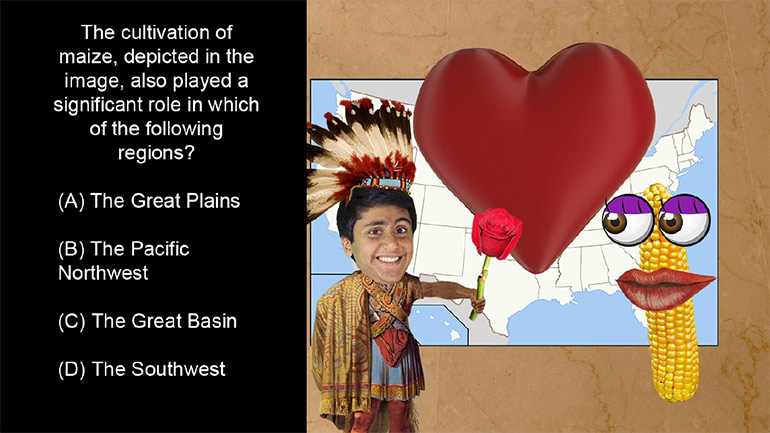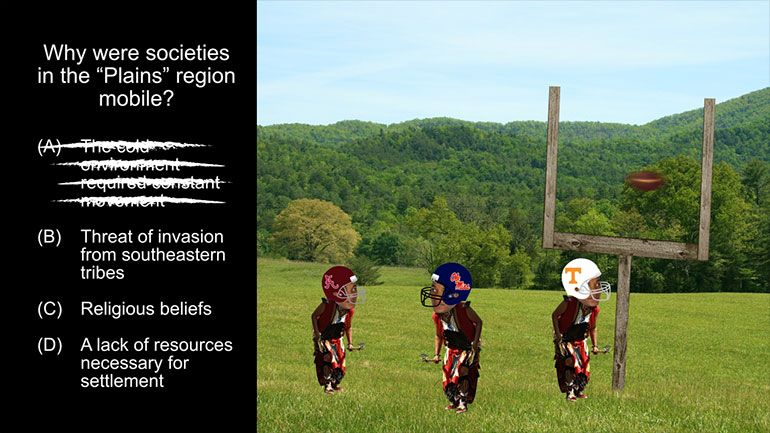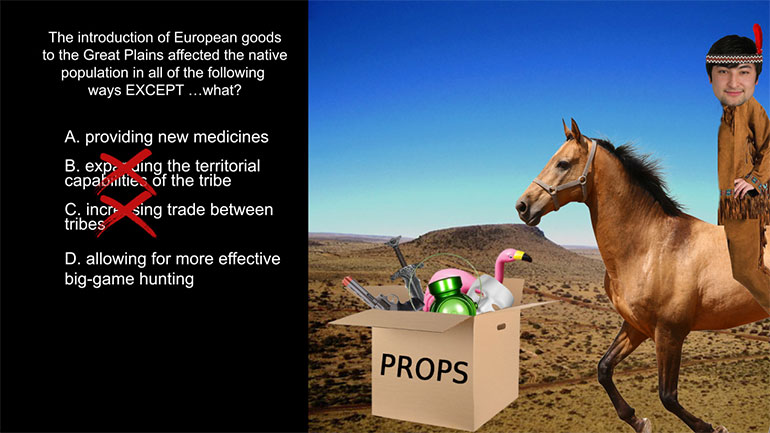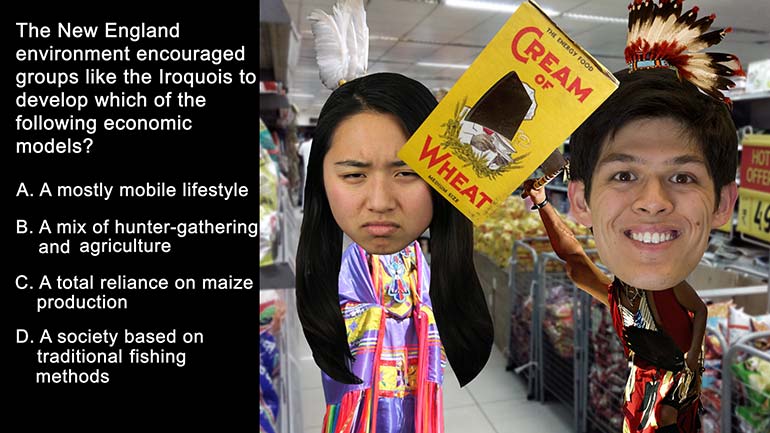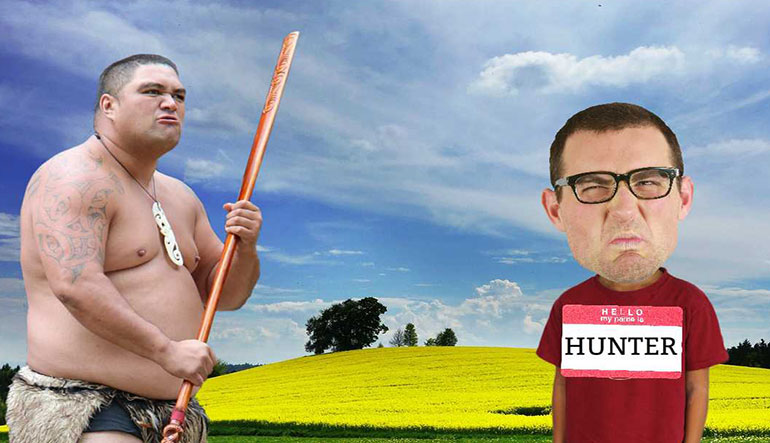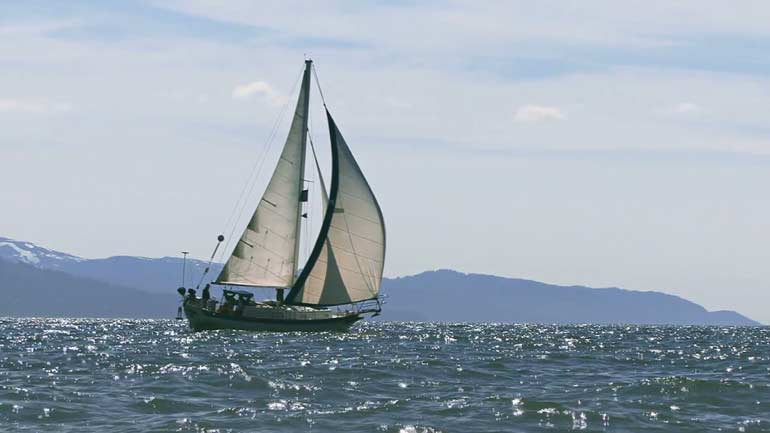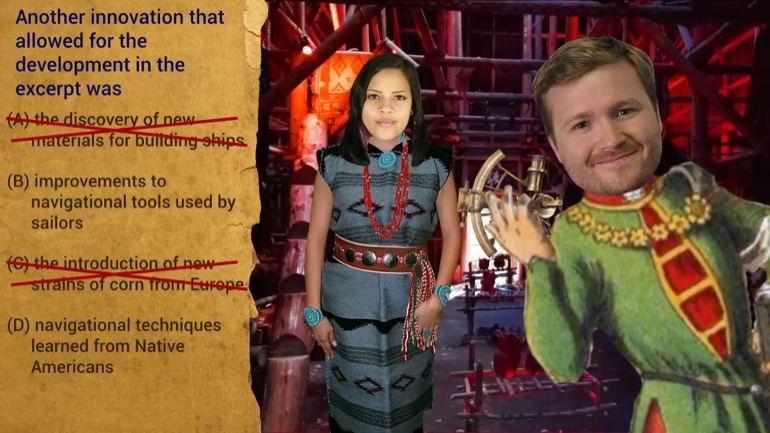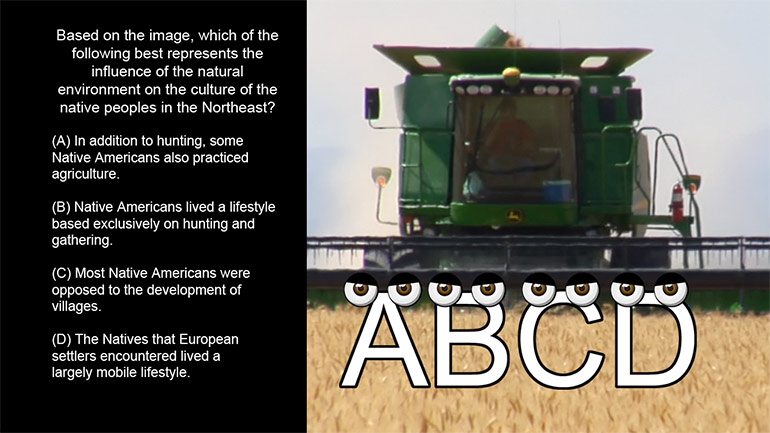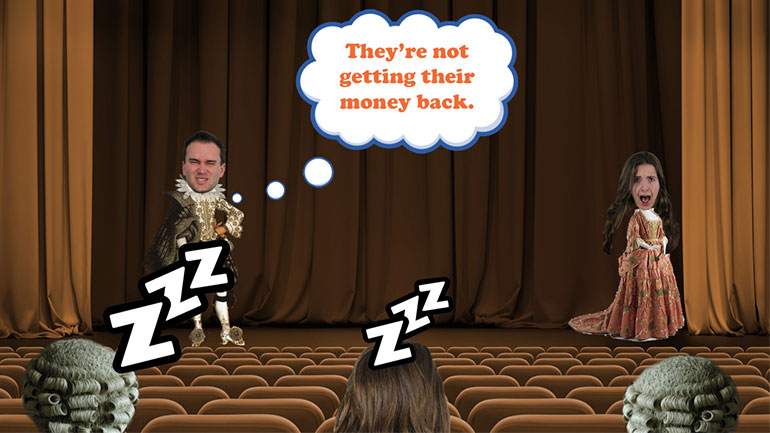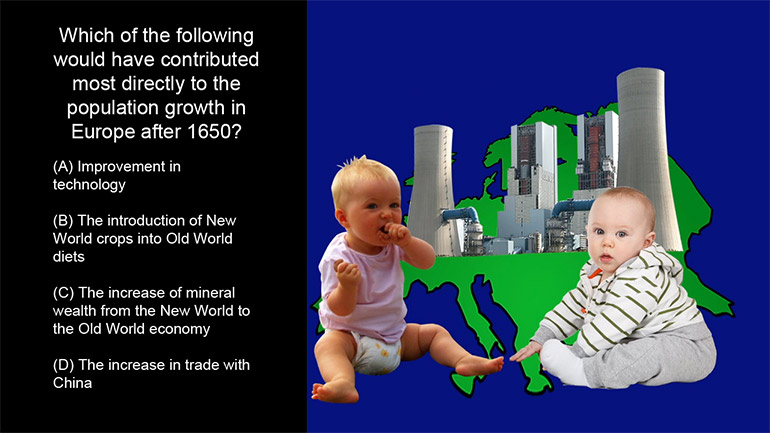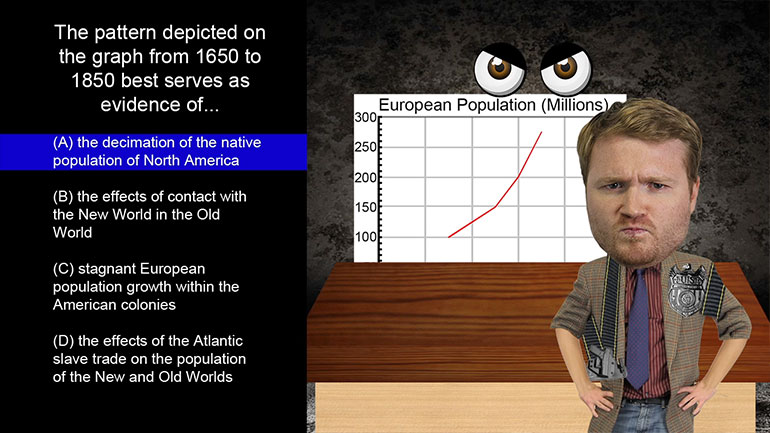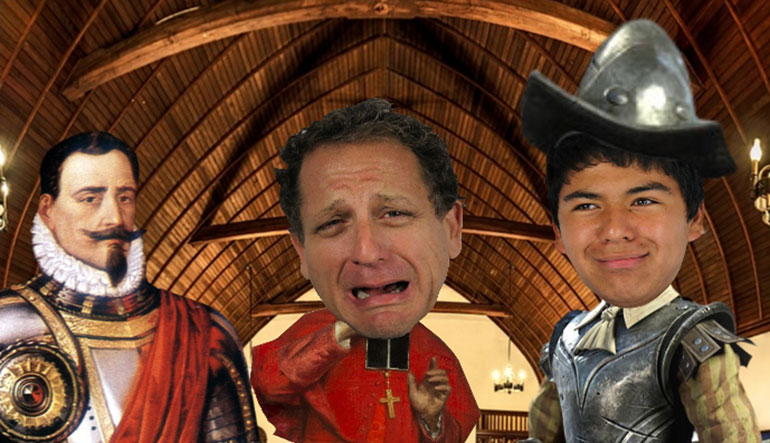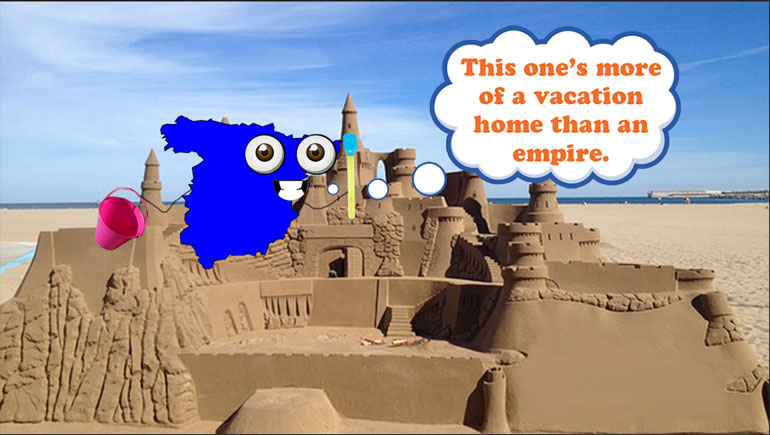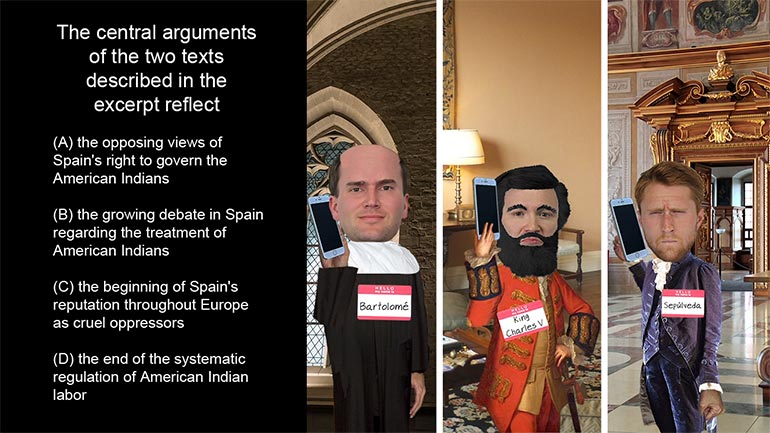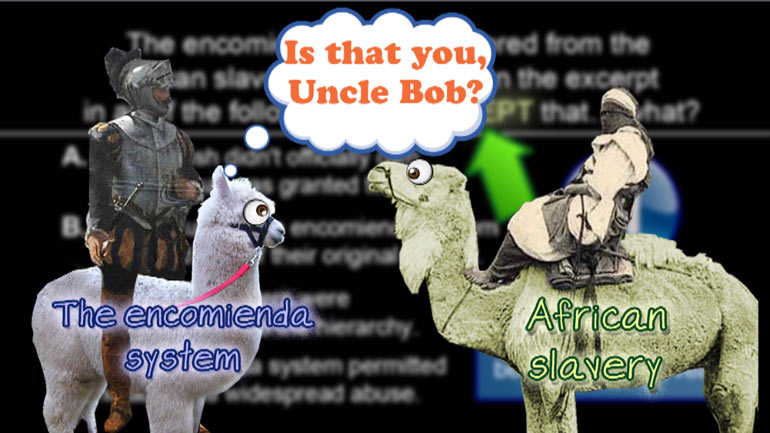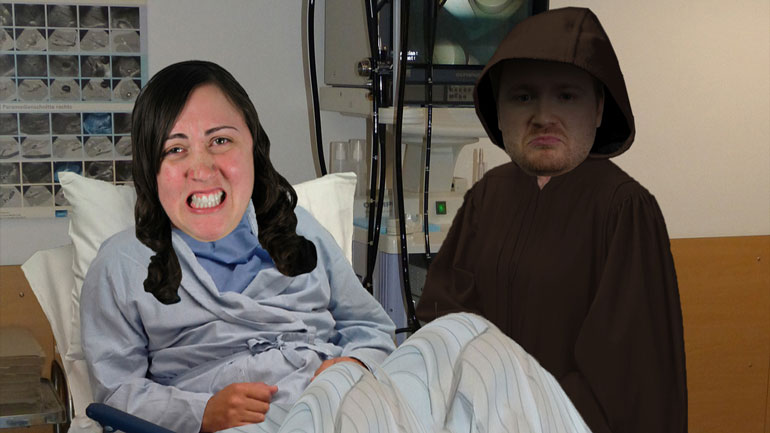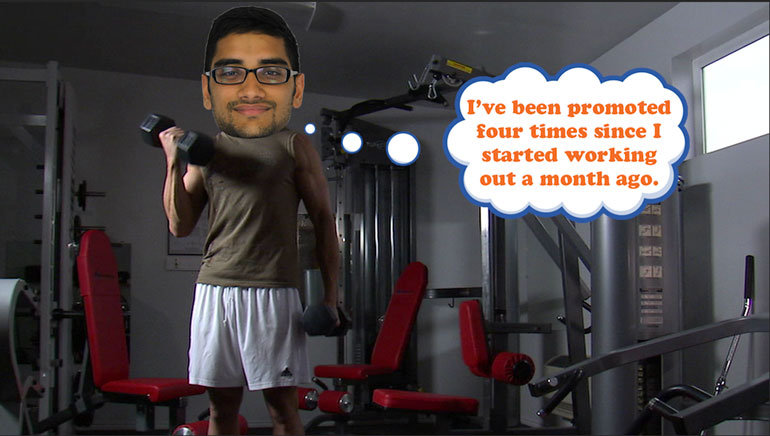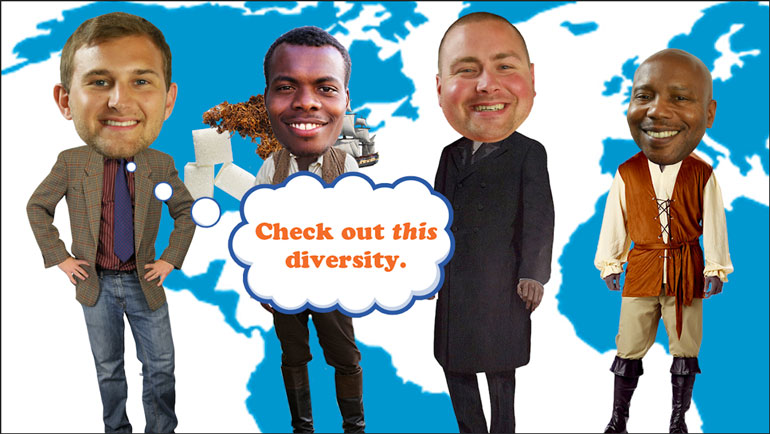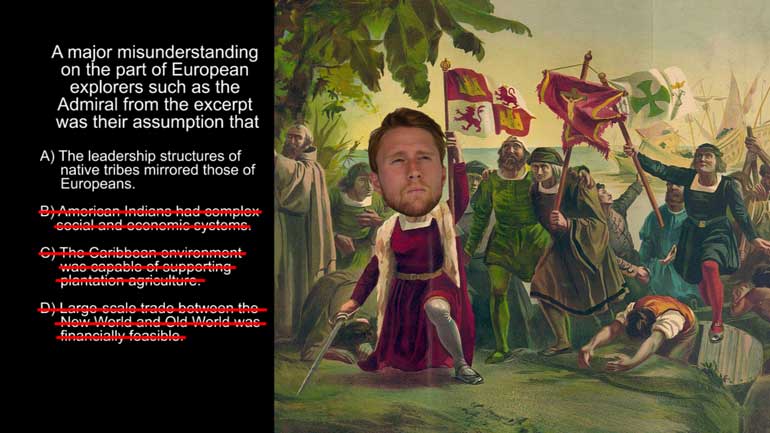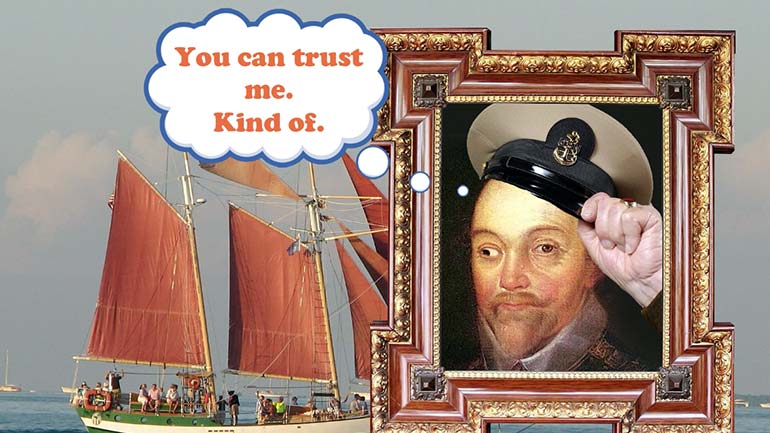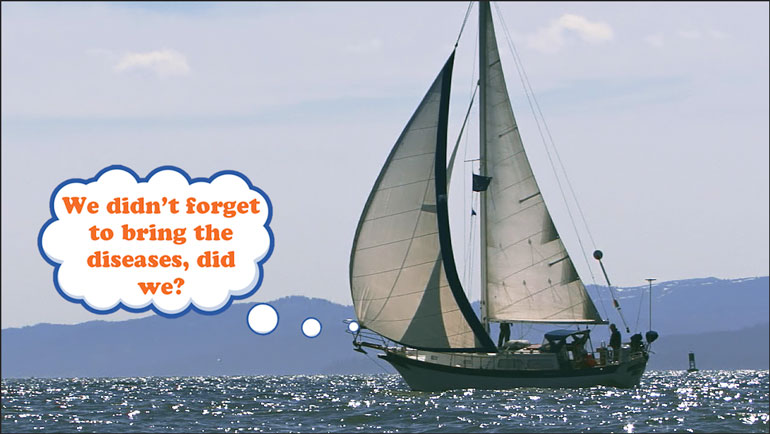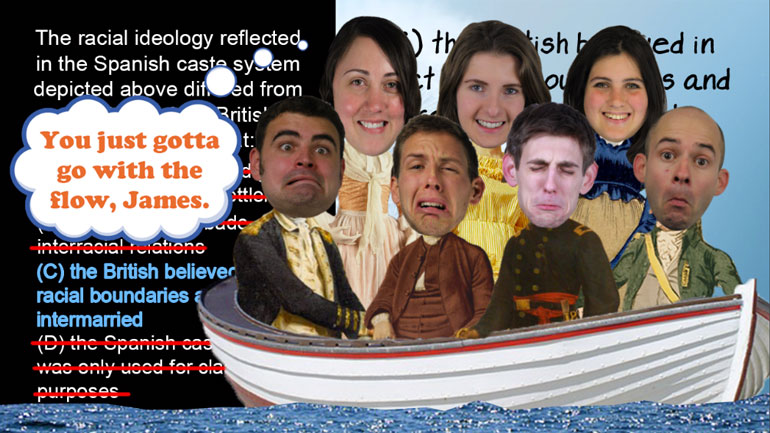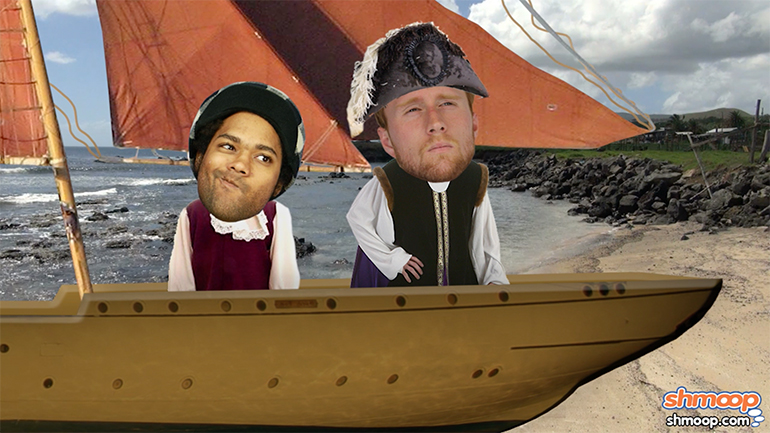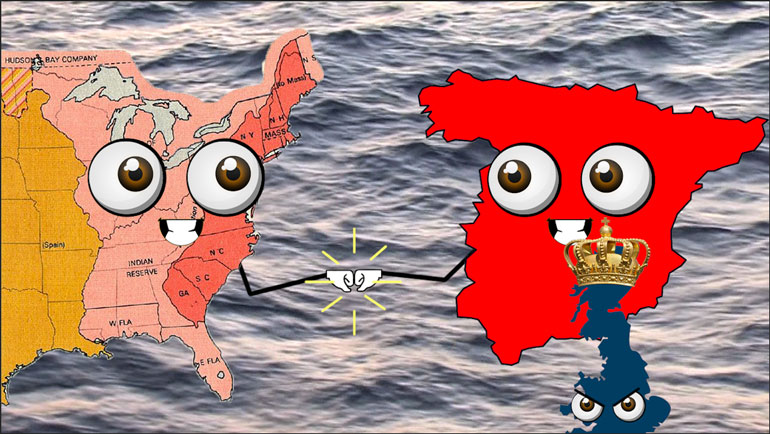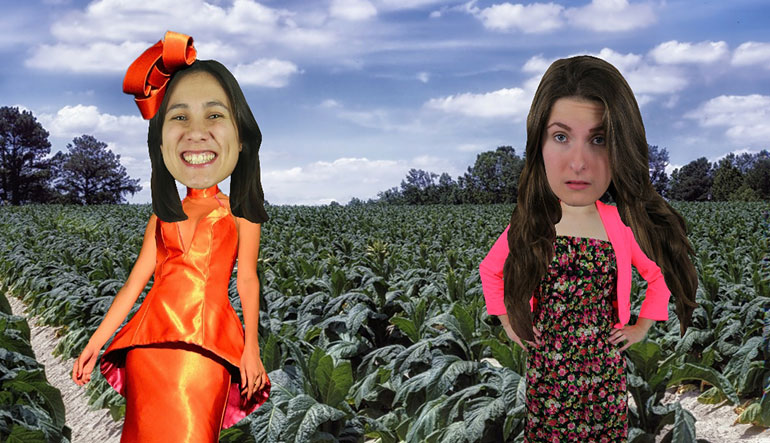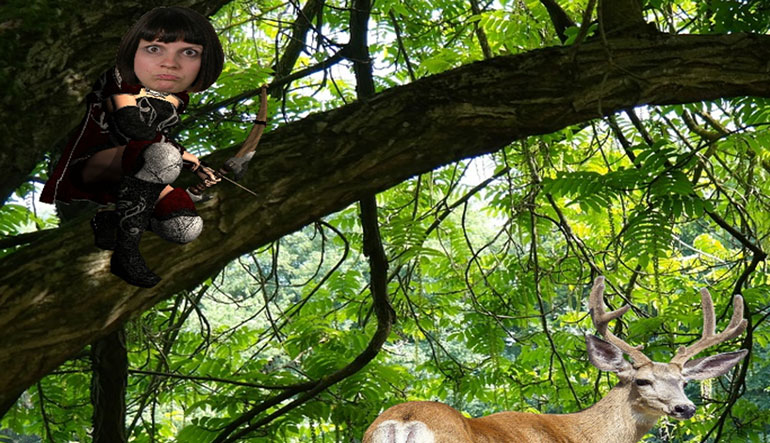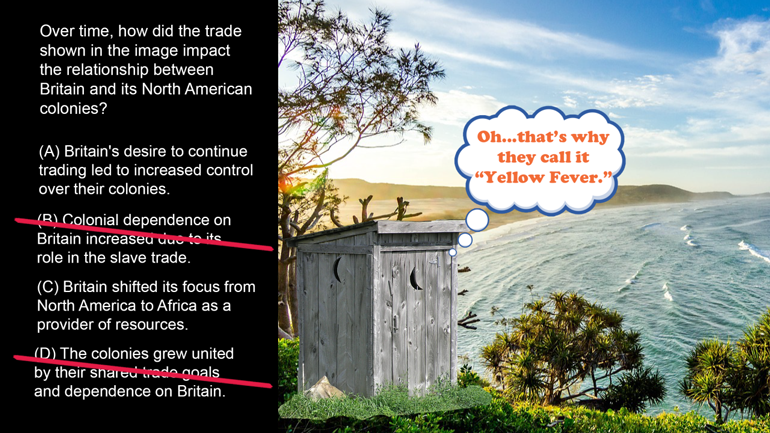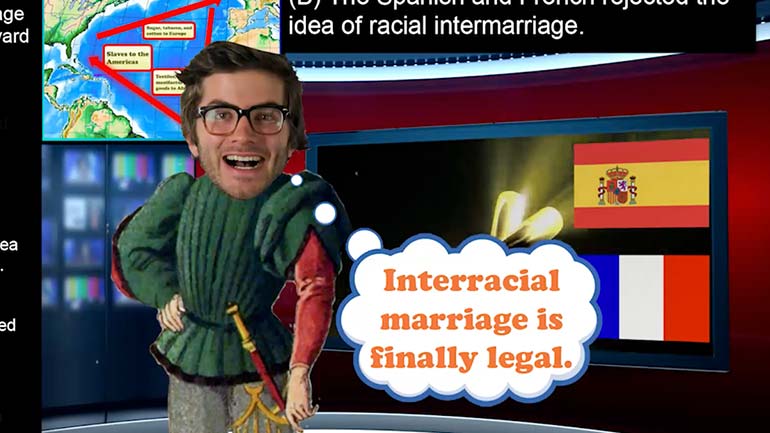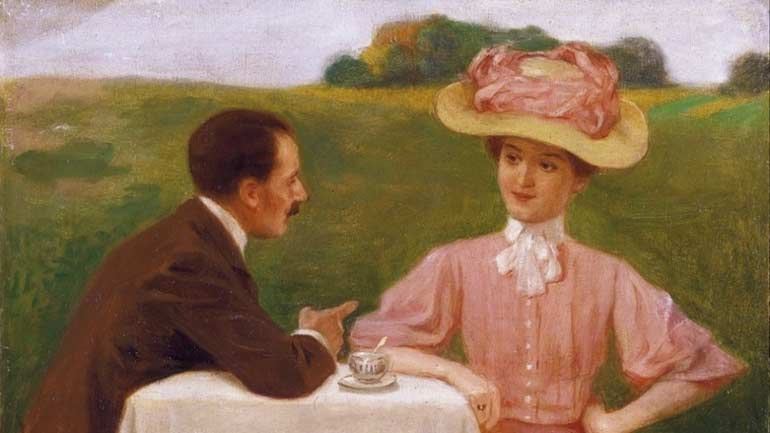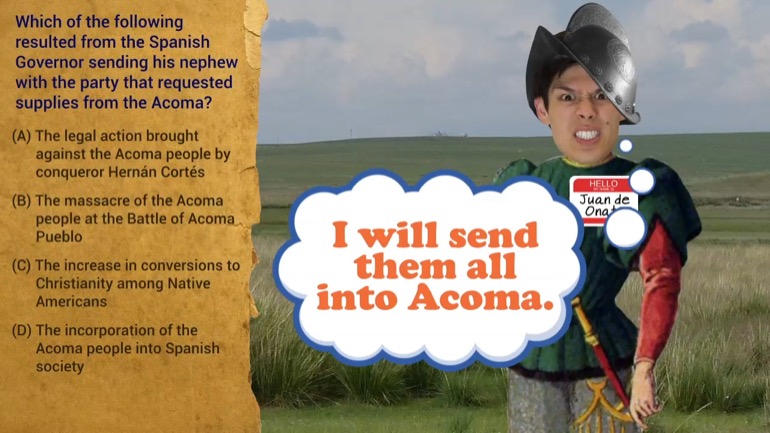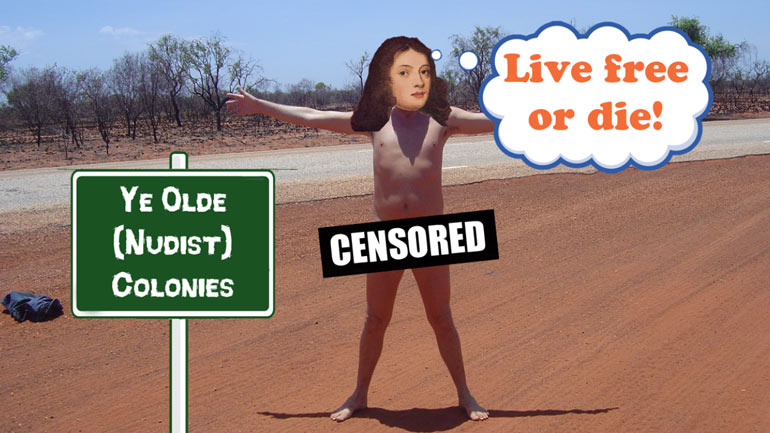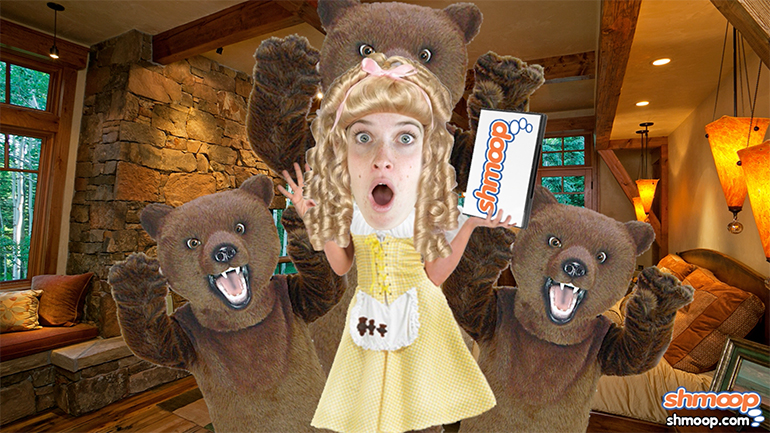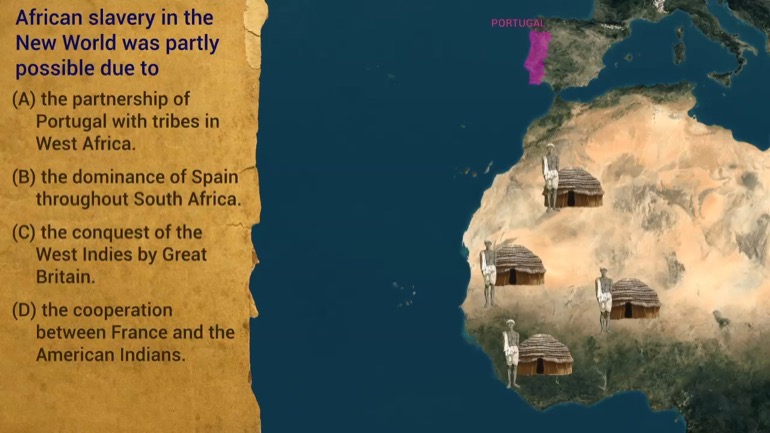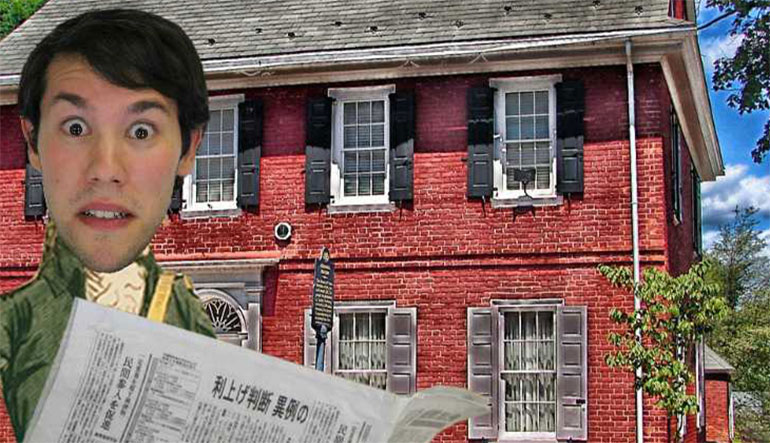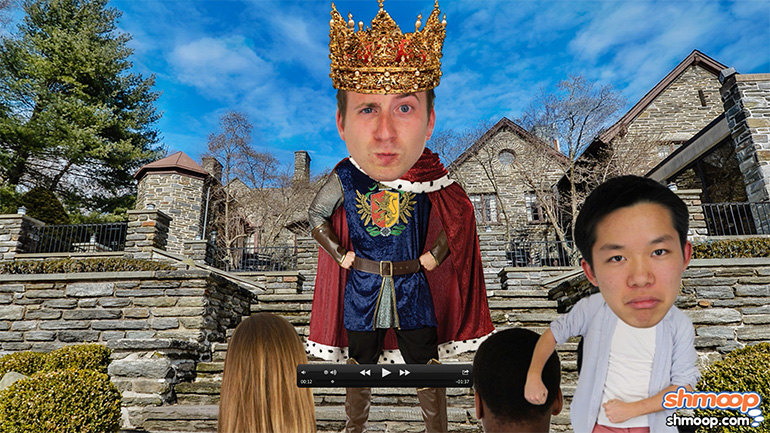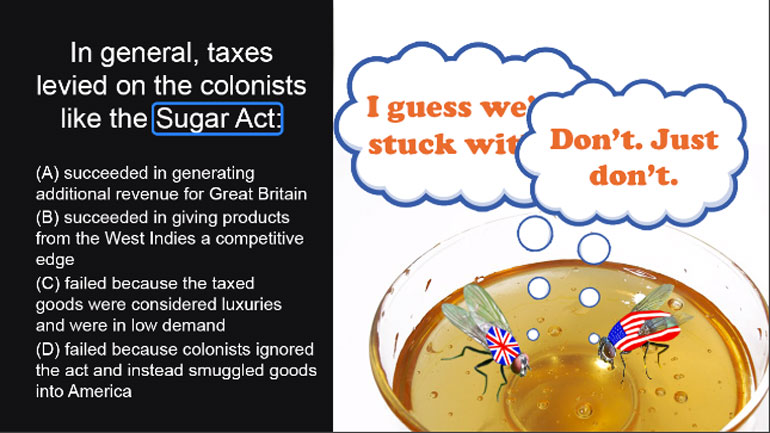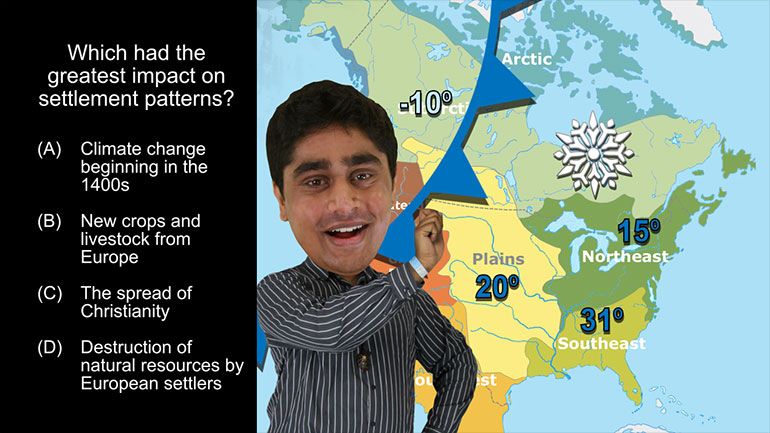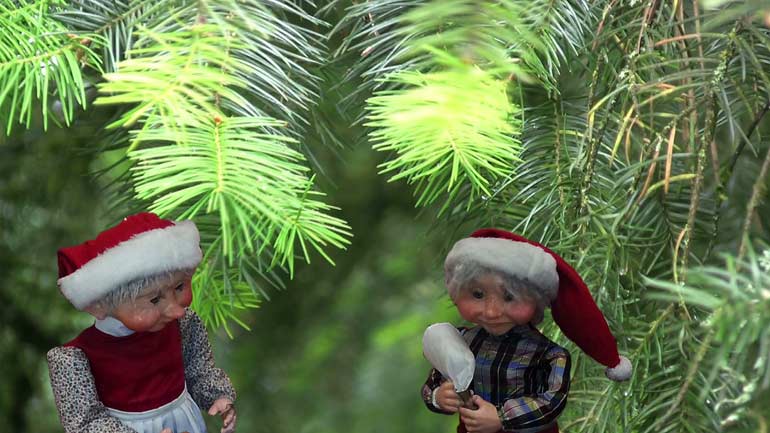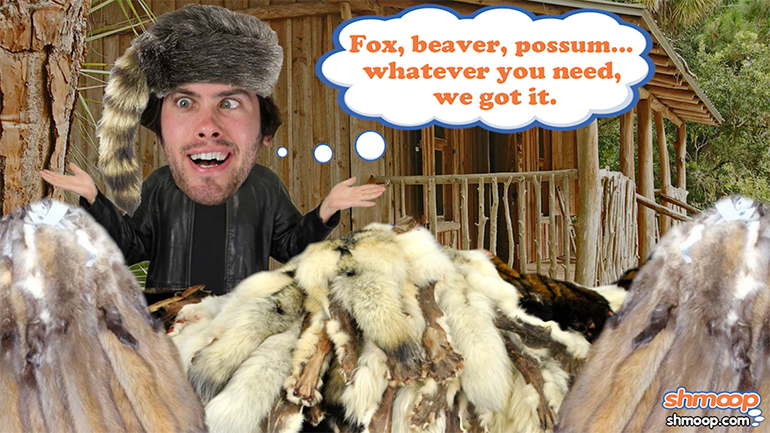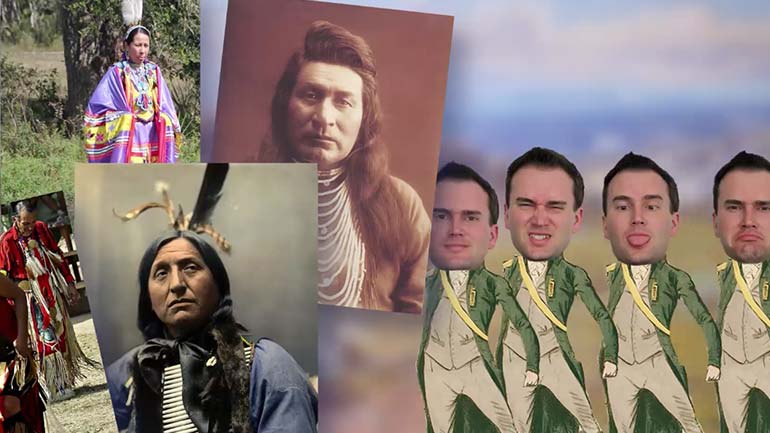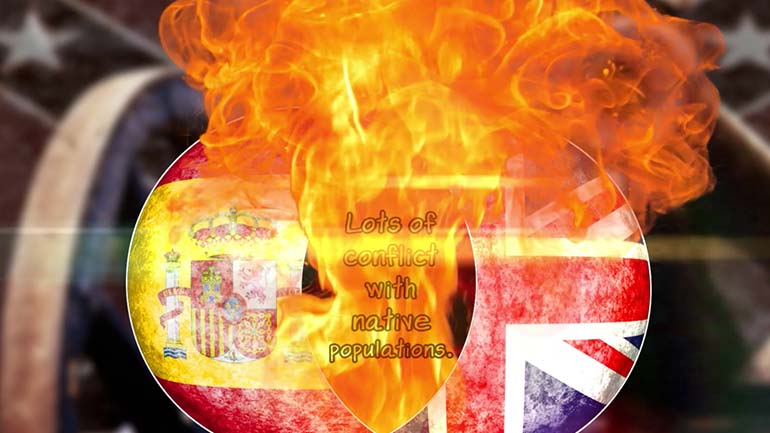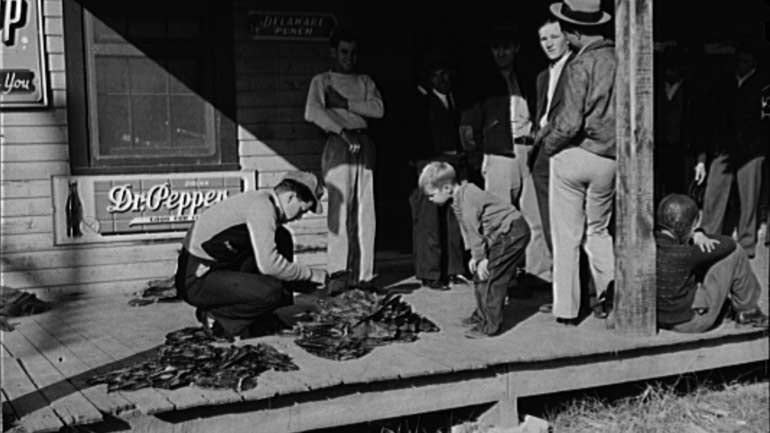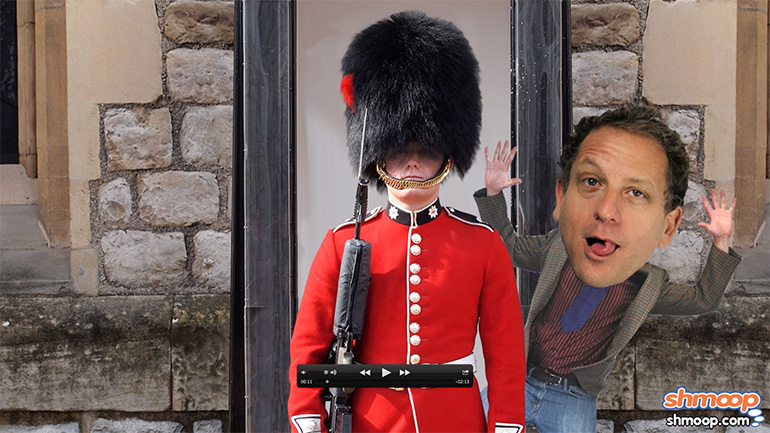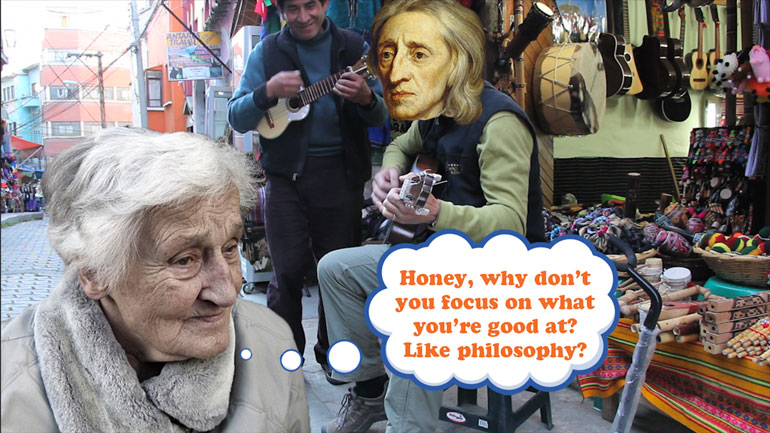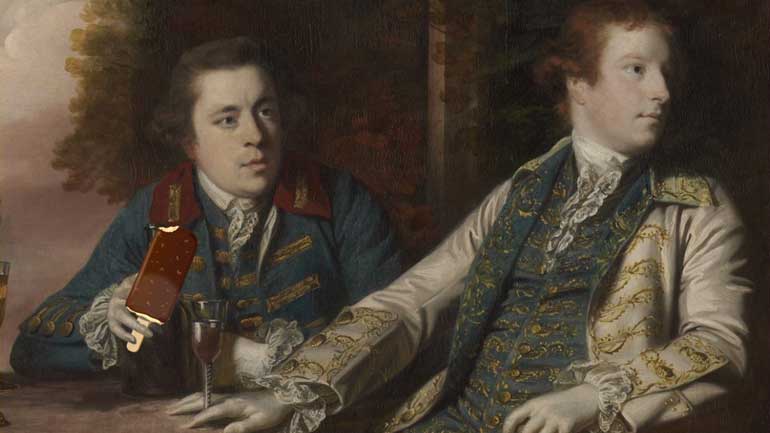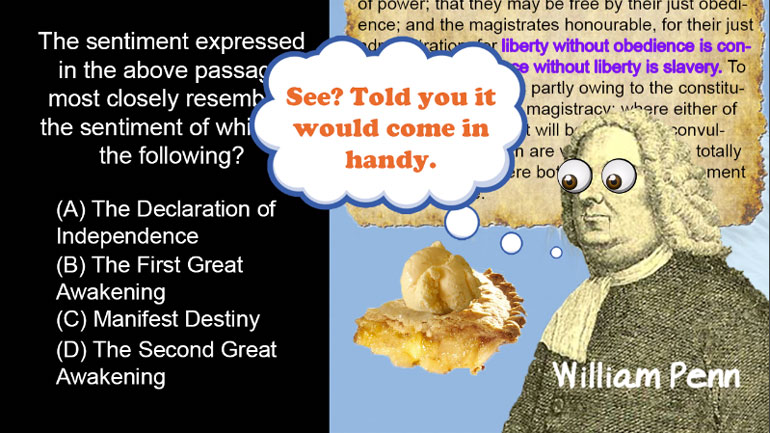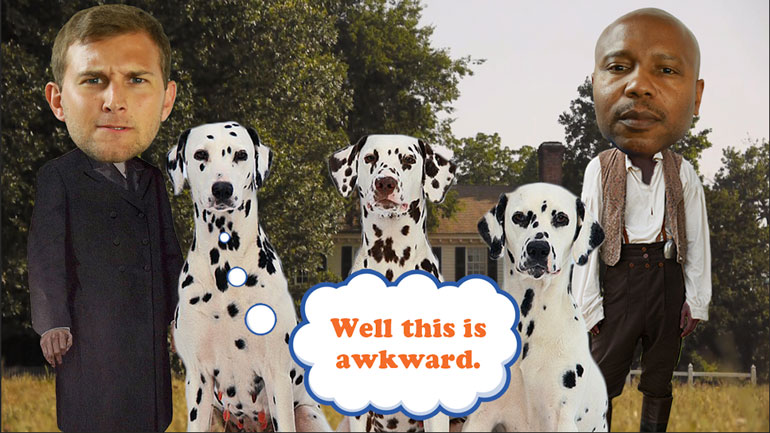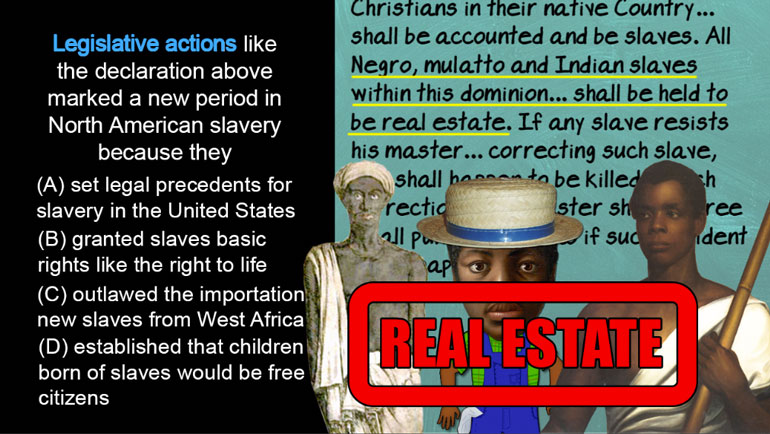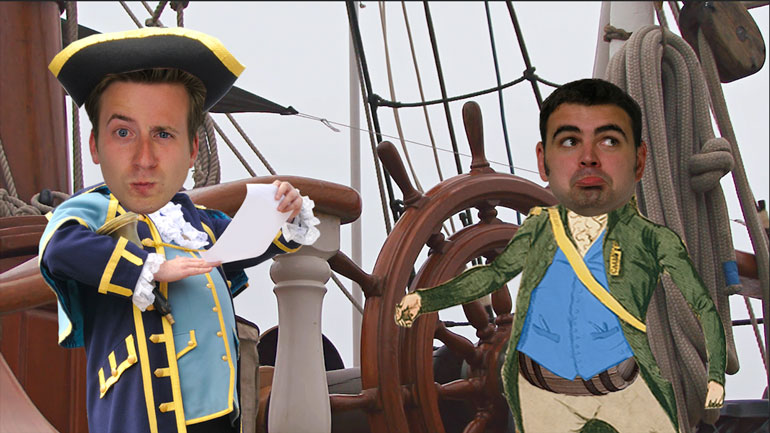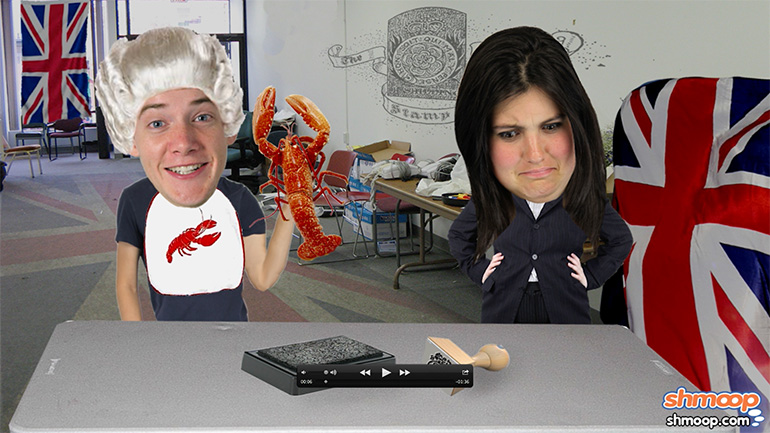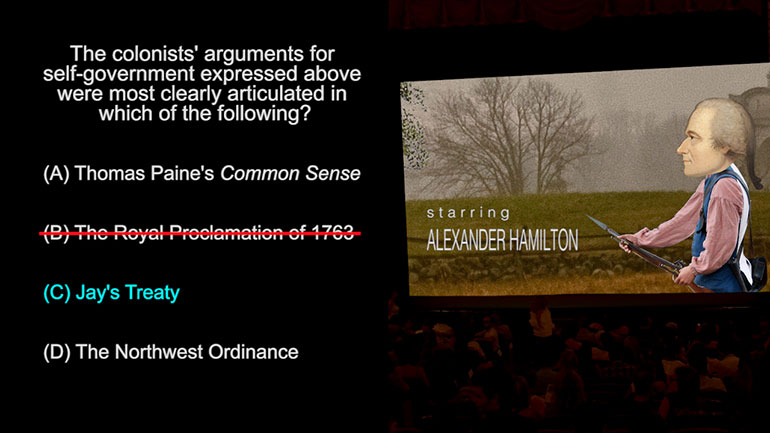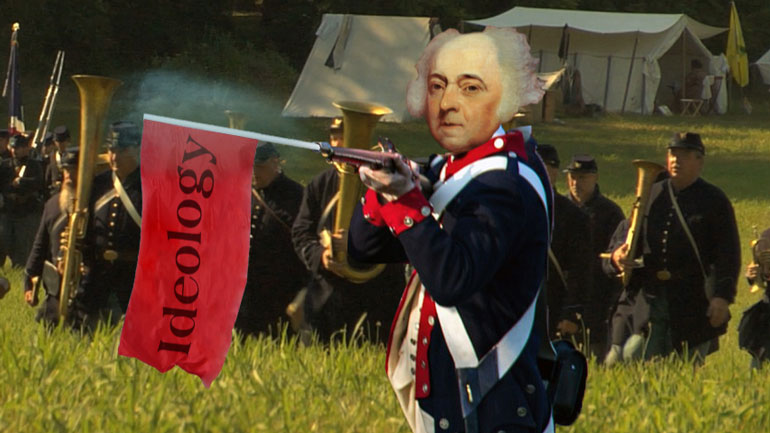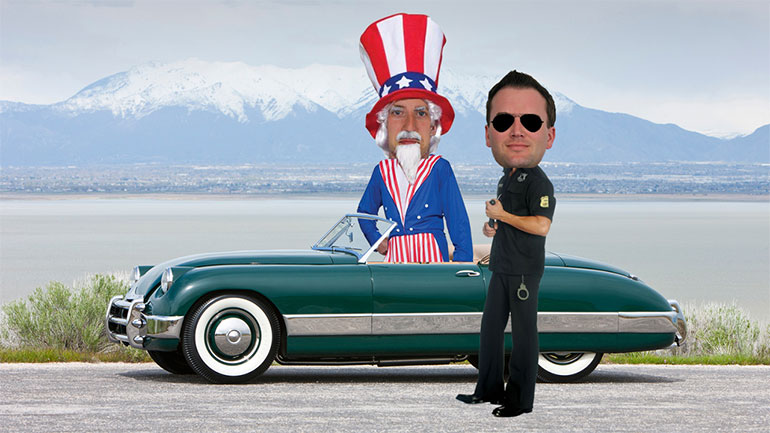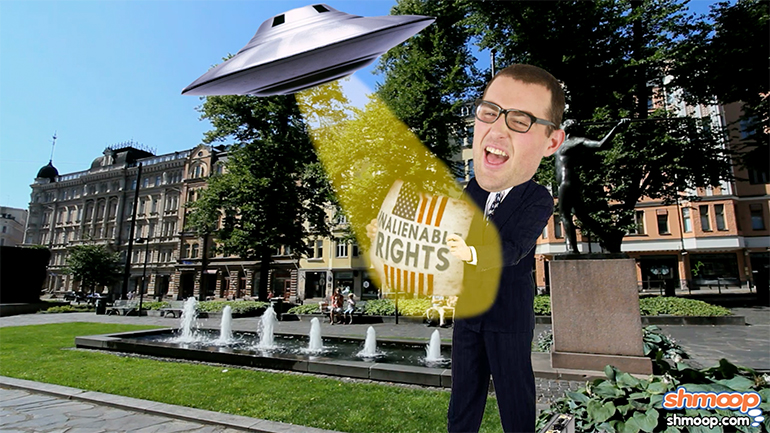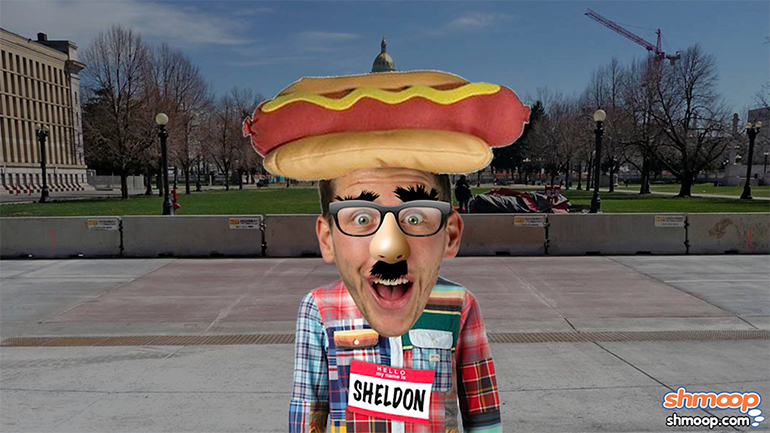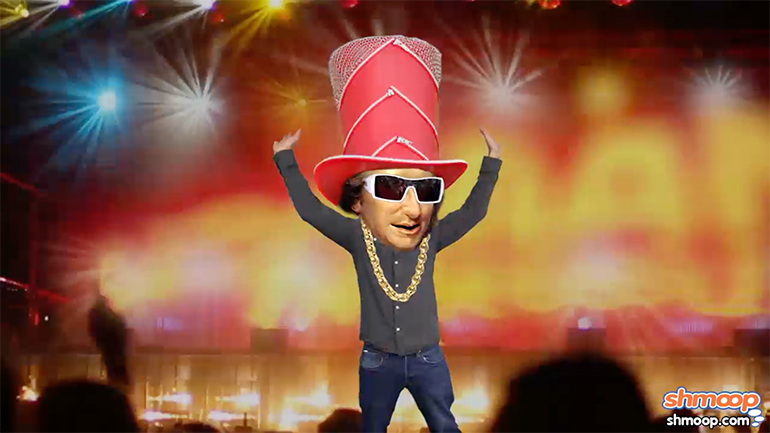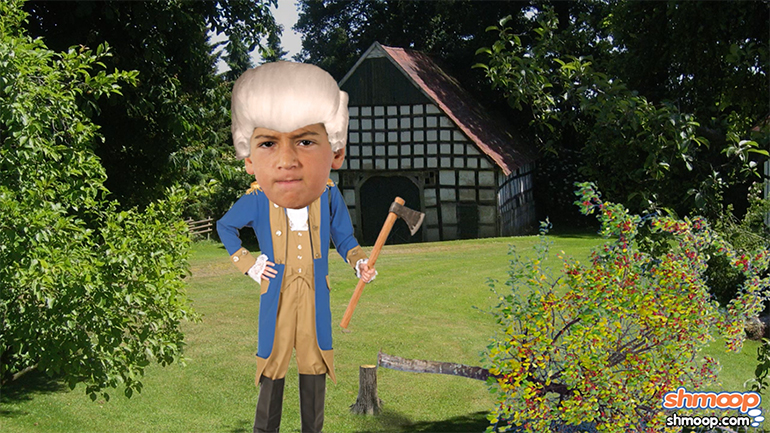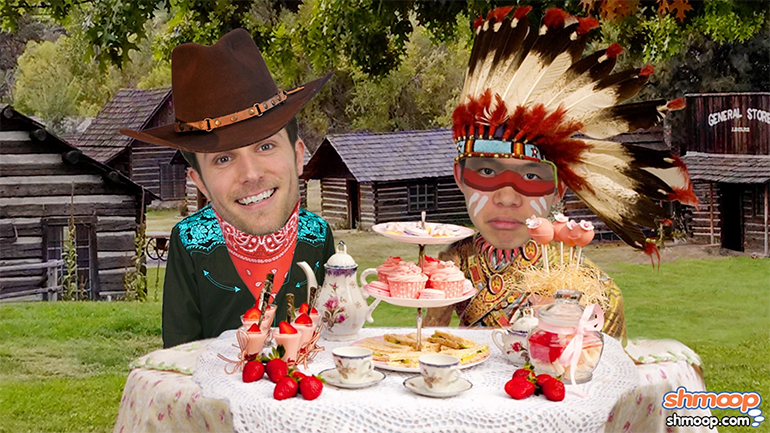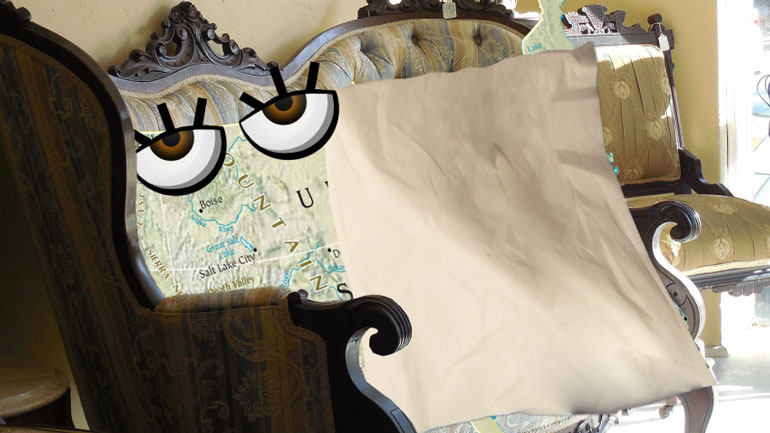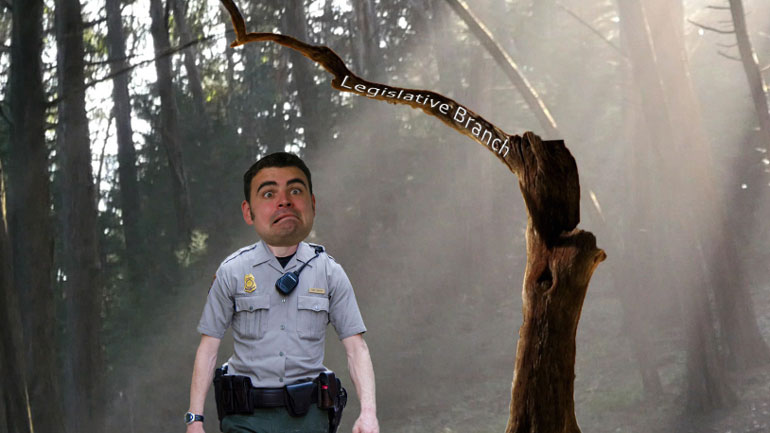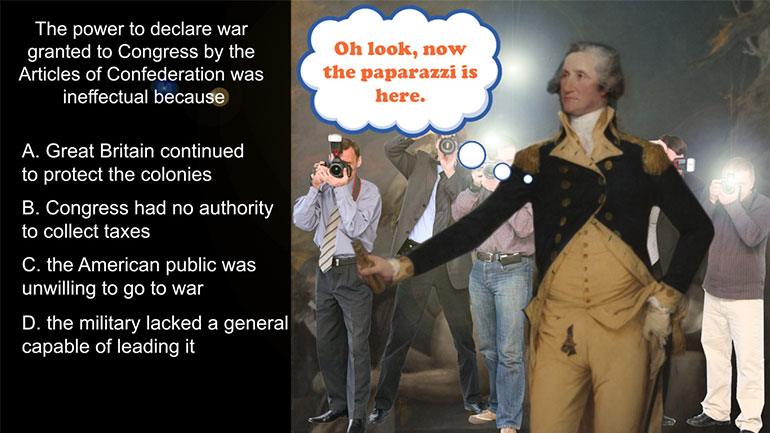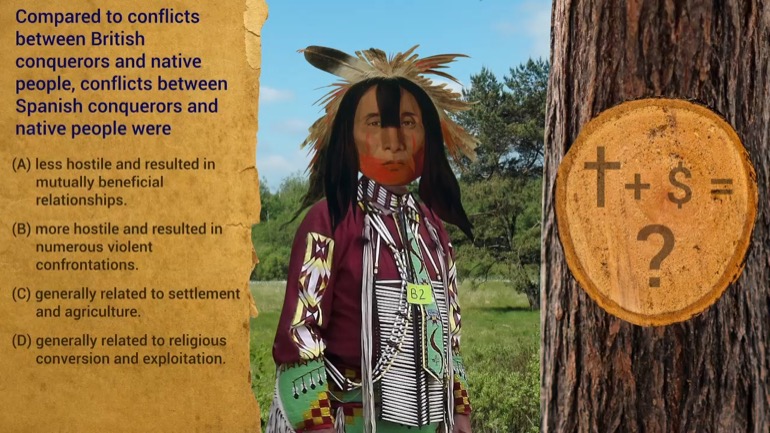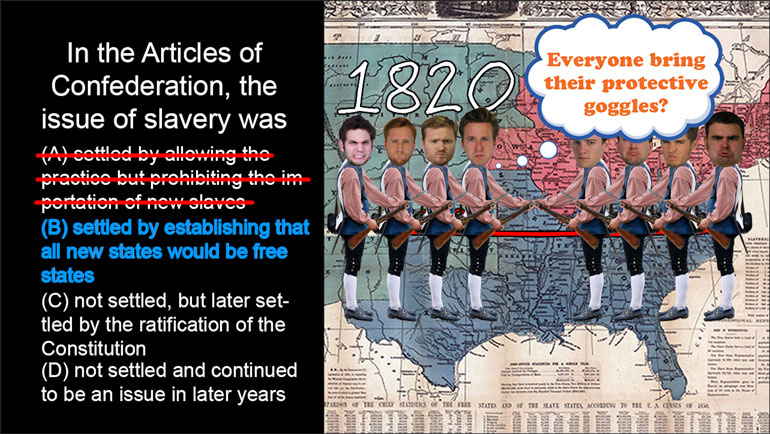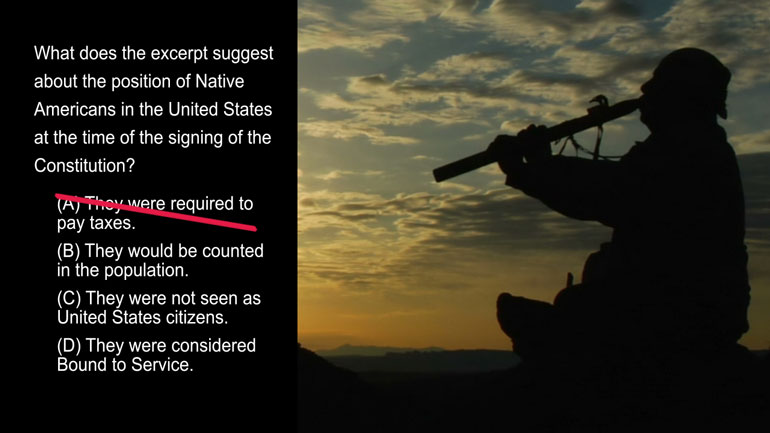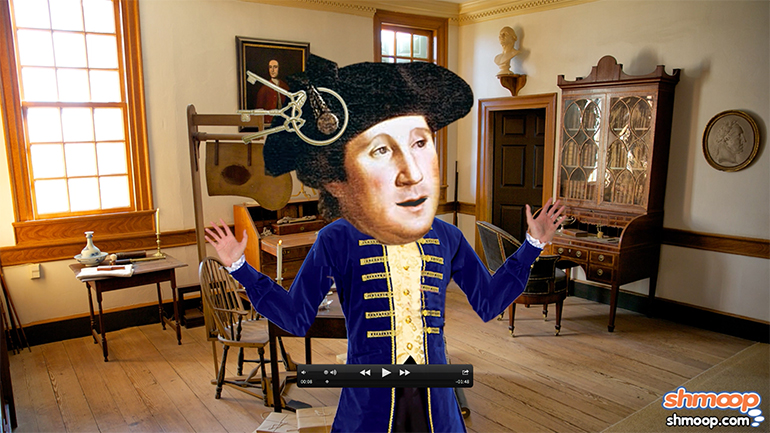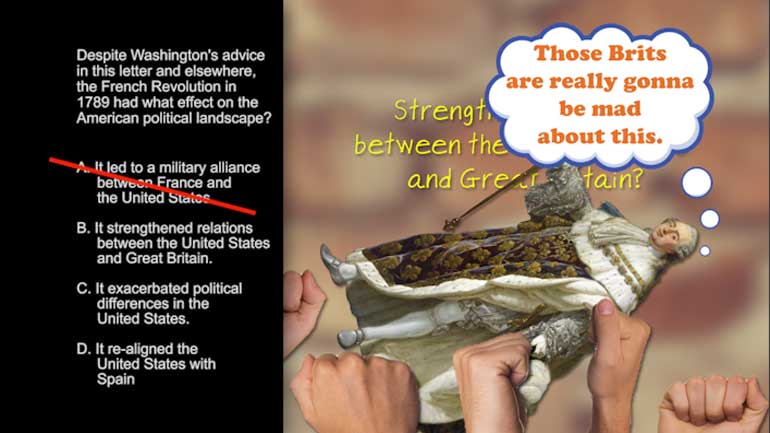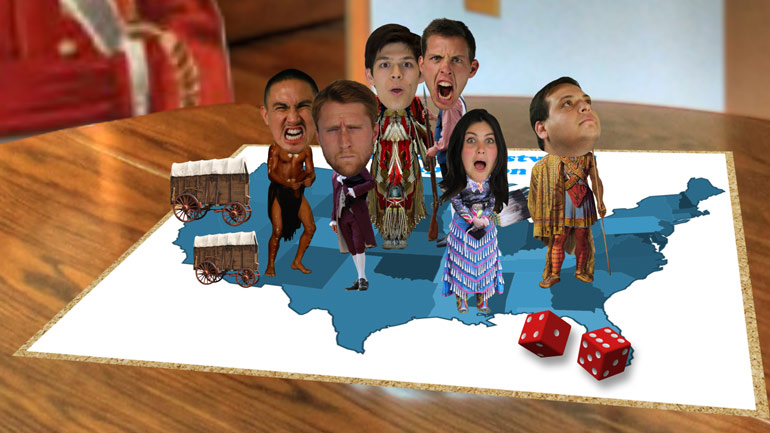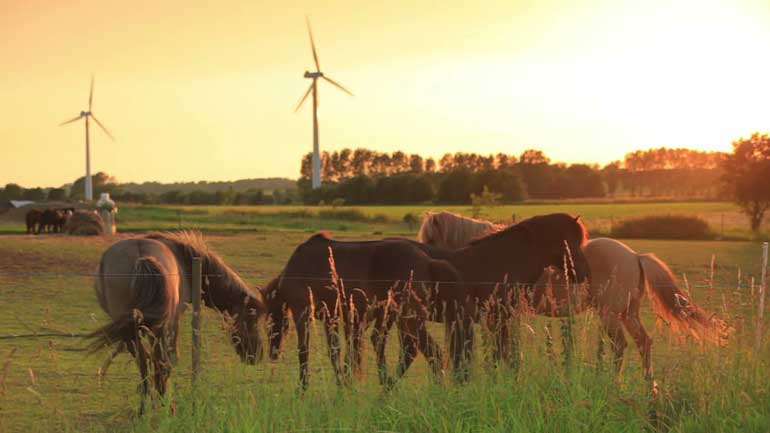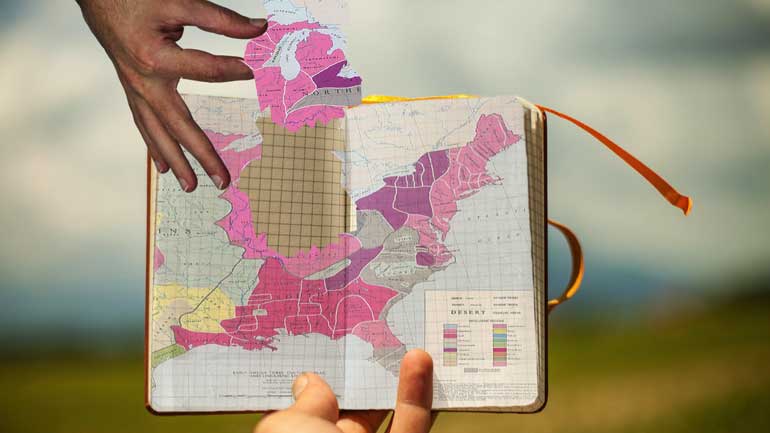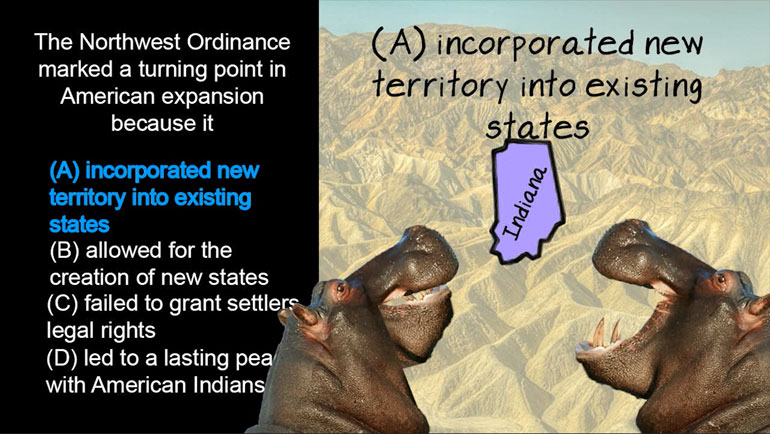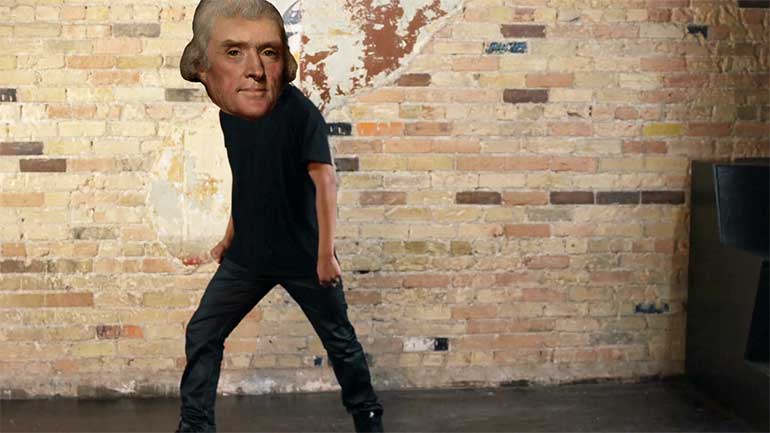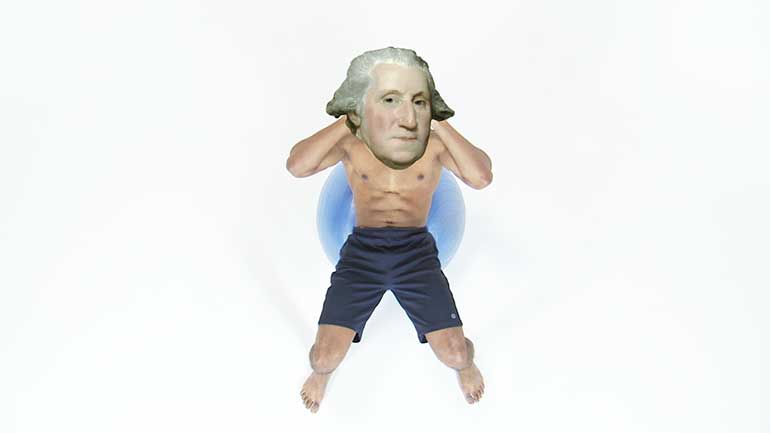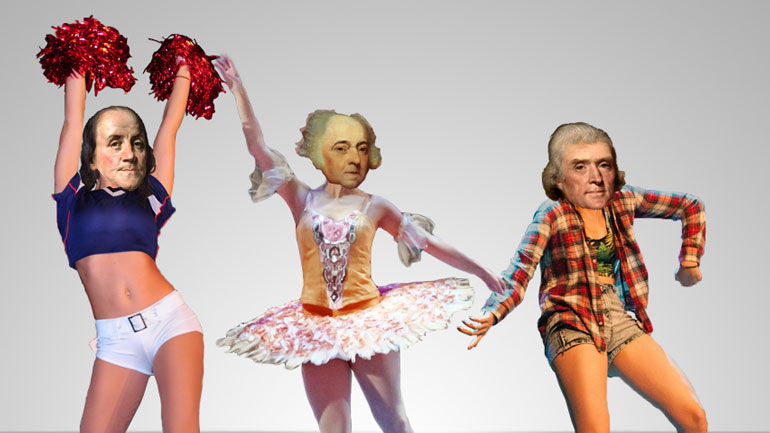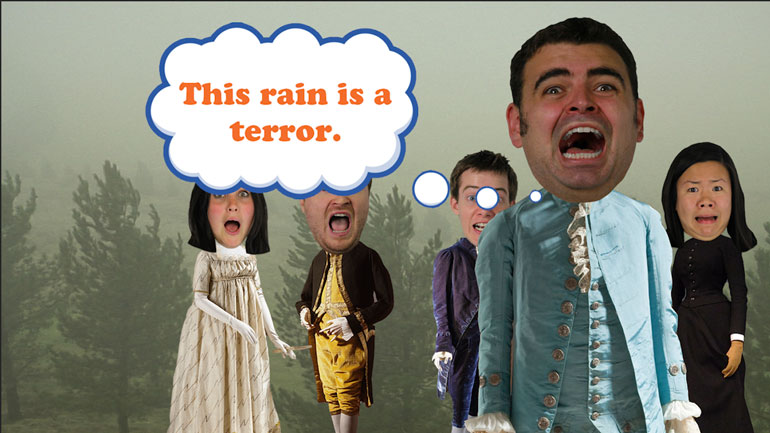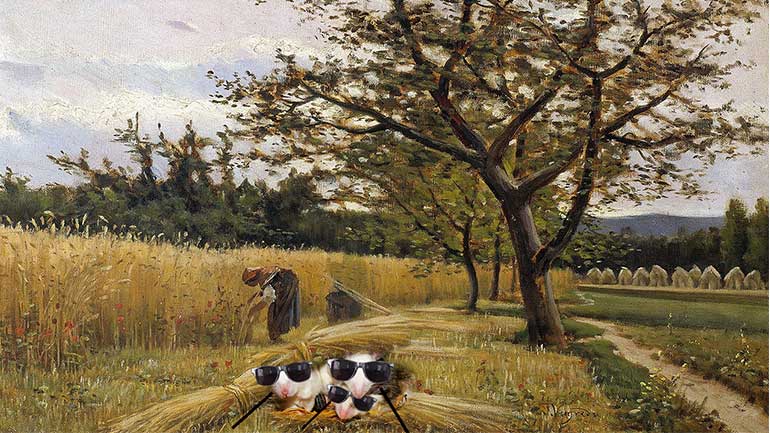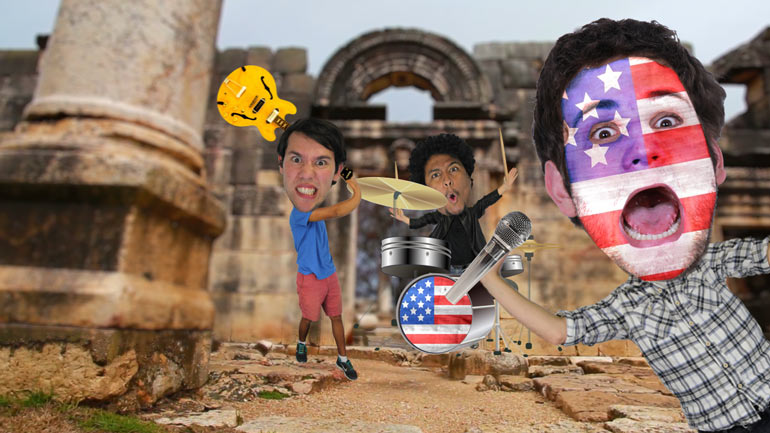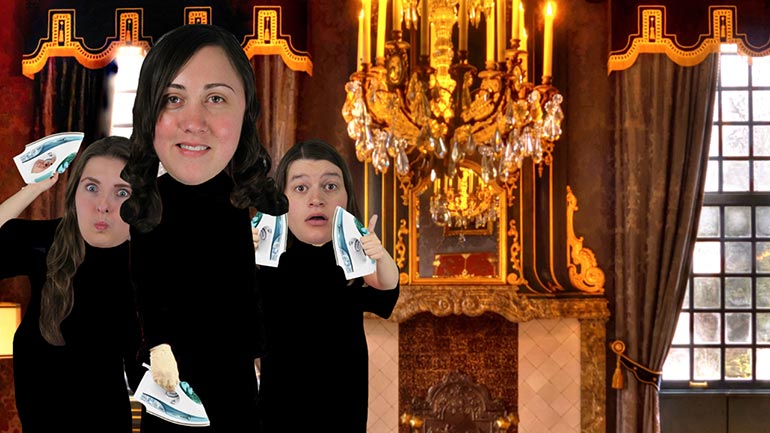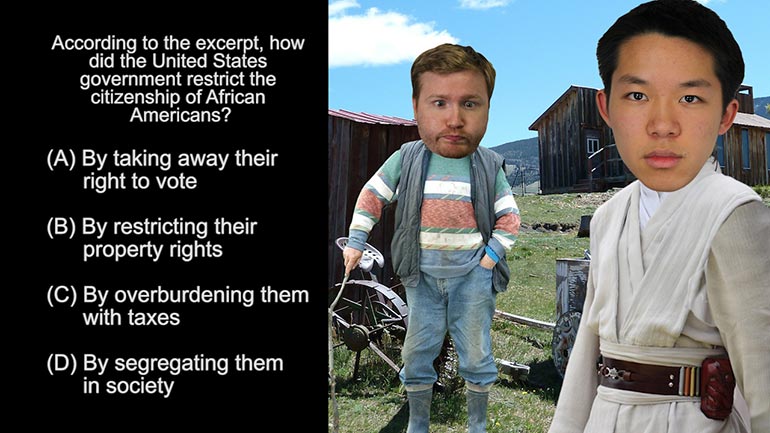ShmoopTube
Where Monty Python meets your 10th grade teacher.
Search Thousands of Shmoop Videos
AP U.S. History Videos 273 videos
Today's lesson: The Civil War. A war may be civil, but it's never pretty. Well, aside from the Pretty Pink Fairy Wars of '93...but no one seems to...
AP U.S. History Period 1: 1491-1607 Drill 3, Problem 2. The cultivation of maize, depicted in the image, also played a significant role in which of...
AP U.S. History Exam 2.2. Prior to European contact, why was it necessary for the societies of the "Plains" region on the map to live a mobile life...
AP U.S. History Exam 2.4 167 Views
Share It!
Description:
AP U.S. History Exam 2.4. How did trades like the one shown in the image lead to greater conflict among Native American groups?
Transcript
- 00:00
[ musical flourish ]
- 00:02
And here's your Shmoop du jour, brought to you by hunter-gatherers,
- 00:05
a kidnapping ring solely focused on kids named Hunter. [a tribal man looking for Hunter]
- 00:09
Yeah, they're really mean. Avoid them, please.
- 00:11
All right, how were the societies in the Northwest
Full Transcript
- 00:14
similar to those in parts of California?
- 00:17
And here are your potential answers. [image of map of The U.S]
- 00:18
[ mumbles ]
- 00:24
Okay.
- 00:26
Native American societies in North America lived
- 00:28
their lives according to the rules of the lands they settled on. [a tribal man and woman arguing about the land]
- 00:32
At least until the Europeans came and shook things up.
- 00:35
So let's see which answer best describes
- 00:37
how tribes in the West were different from the rest.
- 00:40
Were societies in the Northwest
- 00:42
similar to those in parts of California because A - [a tribal man looking at a house made of teepee]
- 00:46
their homes were mobile so they could follow herds of animals?
- 00:50
Well, actually, the most mobile societies were nomadic tribes
- 00:54
in the Plains region. So that gets rid of A.
- 00:57
Were societies along the West coast similar because C - [a man lost in a corn field]
- 01:01
their economies depended on maize that spread from Mexico?
- 01:05
No, corn. That a-maize-ing stuff.
- 01:07
Well, hmm. Maize from Mexico played a
- 01:10
big role for Southwestern tribes
- 01:12
who built their homes in the sides of the cliffs and mountains. [two tribal women having a conversation]
- 01:16
So that's puebl-y not C or D.
- 01:19
Get that? Pueblo? That's a bad joke. Sorry.
- 01:22
Get rid of that thing.
- 01:23
All right. Which means societies in the Northwest
- 01:26
were similar to those in parts of California because B - [a tribal man hunting for potatoes]
- 01:29
they survived on a mix of hunting and gathering.
- 01:32
California covers a bunch of land from North to South,
- 01:35
which means it probably has more in common with the Northwest
- 01:38
than New Mexico and Arizona.
- 01:40
And unlike farmers in the Southwest,
- 01:42
Northwestern tribes survived on a mix of [image of men carrying potatoes]
- 01:45
hunting and gathering. So B is the right answer.
- 01:47
And for societies in that part of North America,
- 01:50
nuts and berries were all the for-rage.
- 01:53
Forage? Boy, we really stretched on that one. [an old man on the street checking something]
- 01:57
[ laughter ]
Related Videos
Ever heard of a "living document"? They eat and breathe just like the rest of us! They even walk around on their own two legs. Okay, fine—maybe t...
If the Puritans had gotten their way, religion would play a much larger role in lawmaking these days. Want to know more? Watch the video for all th...
What happened between the creation of the Articles of Confederation and the ratification of the current U.S. Constitution? This video analyzes the...
The Modernists thought the world had a lot of problems, and they were intent on fixing them—or at least talking about fixing them. Unfortunately,...
This video explains Federalism and the quest for a fair balance between state and national power. It covers the progression and compromises of Fede...

